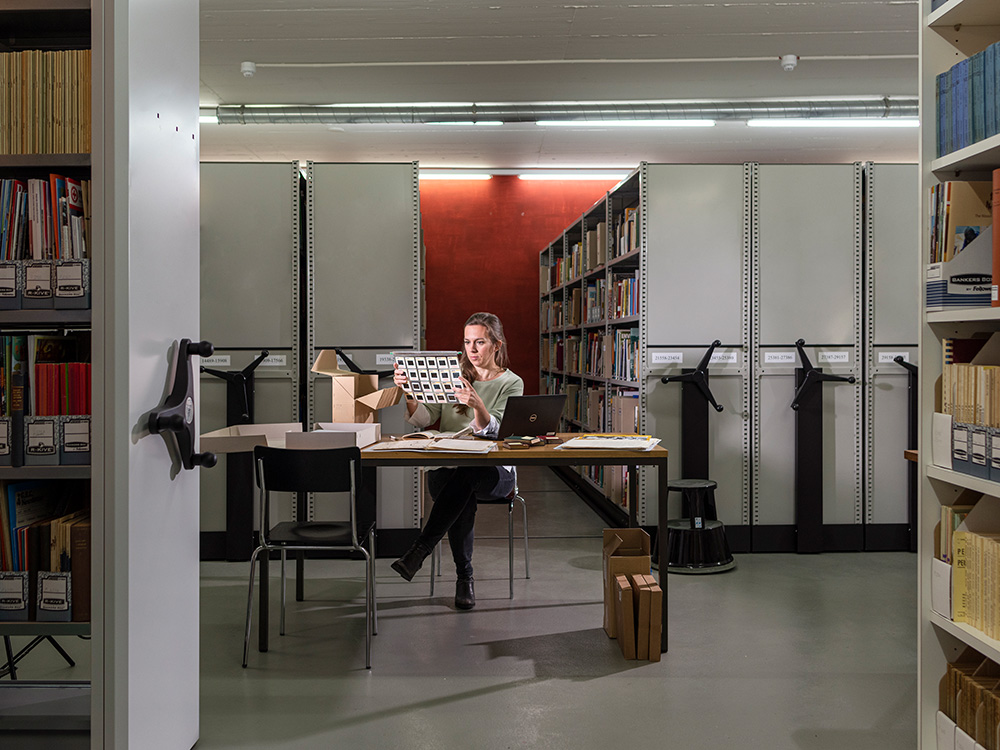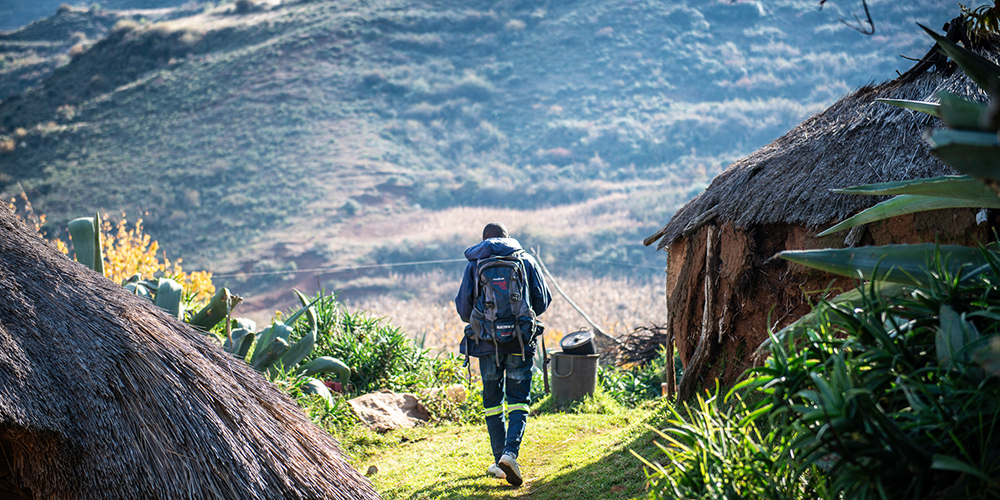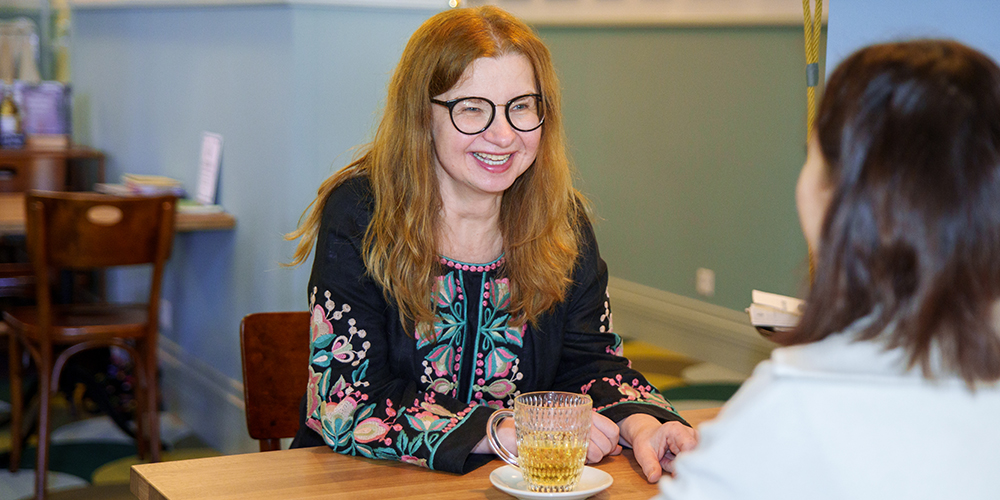Learning from Africa
Knowledge and innovation flow in only one direction – from rich to poor. Julia Tischler, professor for African History at the University of Basel, questions this common notion. She wants to find out what western industrialized nations can learn from Africa, for example in the health sector.
Julia Tischler became interested in African history during her studies - but not because there were so many lectures on the subject. On the contrary, the history of Africa was severely neglected: «Even back then I had the feeling that something was missing in the presentation of world history.» Curiosity about this blind spot prompted her to take a semester abroad in Great Britain in order to take courses on the history of Africa, and eventually led her to a doctoral thesis on the construction of the Kariba Dam in Zambia and Zimbabwe.
Basel – a hotspot for African Studies
After several years of working in research, among others at the University of Bielefeld and the Humboldt Universität zu Berlin, Julia Tischler was appointed assistant professor in history at the University of Basel in 2015. For researchers in African Studies such an appointment is like winning the lottery, says Tischler: «Basel is one of the most attractive places for African Studies. Here you find not only a single chair dedicated to African history, but an active community across various disciplines». The historian also finds the relevant archives in Basel particularly valuable, such as the Basler Afrika Bibliographien and the archive of the Mission 21: «It is simply fantastic to be able to work on site with original historical sources, especially in teaching.»
Innovation the other way round
These historically rooted connections between Basel and Africa were one of the triggers for a joint project with the Swiss Tropical and Public Health Institute (Swiss TPH), which is located in Basel, and the Urban and regional planning community at EPF in Lausanne. «Our basic idea is to look at innovation from the other side of the equation» says Tischler. «Hence not to ask: What can Africa learn from us? But to find out what we can learn from Africa». To this end, the researchers want to take a closer look at health care in Africa in the coming years and evaluate the extent to which rich industrialized nations can benefit from African approaches (see box).
The project partners have jointly developed six subprojects on this topic from the fields of history, public health and urban planning. Tischler describes this interdisciplinary cooperation as very enriching: «Finding a common language, even though challenging, was a great process.» Planned are for example studies on the development of the antimalarial drug Mefloquine in Zambia, on urban agriculture in several African cities and on the financial reform of health insurances in Zambia and Tanzania.
Pluralism in health care
Julia Tischler directs a project that examines the development of the public health care system in Kenya in the period from late-colonialism to the present day. «We are interested in the knowledge bases and practices that informed the health care system, in understanding what was adopted and what was rejected» explains Tischler. «African communities are marked by a coexistence of manifold ways in dealing with health and illness. There coexist for example various ‹traditional› knowledge bases, alongside interventions from the colonial era, missionary traditions, and influences from China.»
According to Tischler, the findings of this study could well be relevant for richer countries: «In the West too, there exist many alternative approaches. After all, medicine is not only a purely scientific phenomenon, but is always associated with feelings and faith. Every public health care system should take this aspect into account.»
Afrika as a source of new approaches
By means of such concrete case studies, Tischler and her project partners would like to demonstrate where a transfer of knowledge between Africa and the industrial nations was or is obvious – and often still does not take place. «Our research should also provide impulses for an exchange in the future,» says Tischler. It is important for her to overcome the idea that Africa is «different» and has nothing to contribute to global issues. «My greatest concern is that Africa should not always be merely seen as an exotic playground, but rather as an integral part of our interconnected world.»
Africa's contribution to global health
The interdisciplinary project African Contributions to Global Health. Circulating Knowledge and Innovations deals with the knowledge, practices and applications of health care in Africa that could also be relevant for the Global North. The four year Sinergia project is funded by the Swiss National Science Foundation with a total of CHF 2.2 million. In addition to the Department of History of the University of Basel, the SwissTPH in Basel and the Urban Planning Research Group of the EPF Lausanne are involved in the project.




